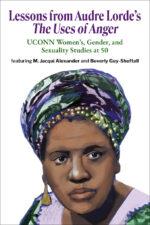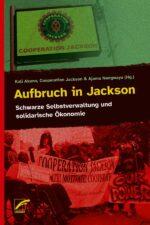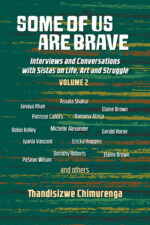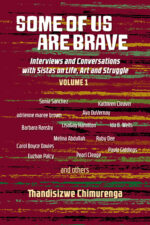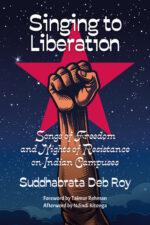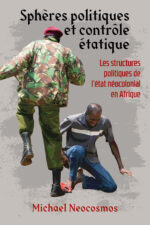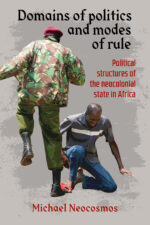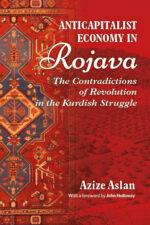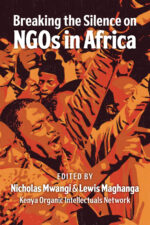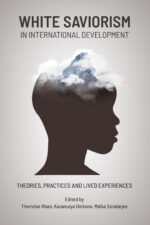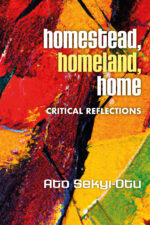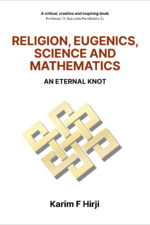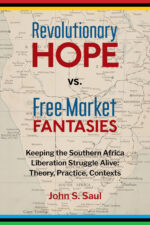-
Lessons from Audre Lorde’s The Uses of Anger: UCONN Women’s, Gender, and Sexuality Studies at 50
USD $ 15.00In recent years, we have witnessed renewed calls for women to embrace anger as a source of power. These voices have Lorde’s “The Uses of Anger”, first delivered at the University of Connecticut (UCONN), Storrs, in 1981, to thank for charting an innovative scholarly and poetic terrain that theorizes anger as much more empowering and liberating than conventional discussions of the term typically allow.
Lorde’s essay redefined anger productively, approaching it as an epistemological tool igniting a desire for self and collective liberation. The result was a remarkable critical reflection that laid the groundwork for deconstructing broader systems of oppression, particularly, heteronormativity, heteropatriarchy, institutionalized racial poverty, racial capitalism, and white privilege. Lorde’s essay moved with precision, centering Black women’s struggles in a world built around the use – and abuse – of racialized people subjected to systematic dehumanization.
In their introduction, Jane Anna Gordon, Elva Orozco Mendoza, and Sherry Zane reflect on the inheritance, lessons, and responsibilities that Women’s, Gender, and Sexuality Studies must grapple with if it is to deepen and fulfill its radical mission.
Guided by the imperative to look backward to understand the present and forge a future, the book closes with a sankofic interview with M. Jacqui Alexander and Beverly Guy-Sheftall, conducted by Briona Simone Jones.
-
Aufbruch in Jackson [German edition of Jackson Rising: Black self-management and solidarity economy]
USD $ 24.00German translation of Jackson Rising: The Struggle for Economic Democracy and Black Self-Determination in Jackson, MississippiHow black activists are building liberation practically from below: Departure in Jackson documents the history of one of the most exciting revolutionary experiments in the USA Present.
Since the 1970s, black liberation movements in majority-black Mississippi have taken change into their own hands. The Deep South should become the center of their independence – “Free the Land!” In the 2010s, the election of Chokwe Lumumba as mayor in the capital Jackson took an important step towards implementing the vision of assembly democracy, solidarity economy and an end to racial inequality. Lumumba dies unexpectedly in 2014, but his son Antar and the Cooperation Jackson continue to move forward.
We learn about the pitfalls of radical local politics and struggles for housing and land, democratic economic models and ecology, internationalist solidarity and the parallels to the Rojava Revolution and the Zapatistas, about encouraging experiences in which different concerns go hand in hand.
-
“Not Bad for a N—, No?” / «Pas mal pour un N—, n’est-ce pas? »
Written during the seventy-fifth anniversary celebrations of the publication of Frantz Fanon’s Peau noir, masques blancs (“Black Skin, White Masks”), “Not Bad for a N—, No?” offers reflections on the circumstances of the publication of this classic work with Fanon’s insights on what he called the attempted “murder of man” and the urgent need for humanity to become “actional.”
Écrit lors des célébrations du soixante-quinzième anniversaire de la publication de Frantz Fanon de Peau noir masques blancs, «Pas mal pour un N—, n’est-ce pas? » offre des réflexions sur les circonstances de la publication de cette œuvre classique avec les idées de Fanon sur ce qu’il a appelé la tentative de «meurtre de l’homme» et le besoin urgent que l’humanité devienne «actionnelle».
-
Afro-Asian Poetry that Changed the World

“It is unclear when ‘Lotus’, a literary magazine of progressive Afro-Asian writers largely funded by the USSR, published its last issue after a successful run spanning two decades (1968-1991); but it was certainly a voice of the Palestinian people.
Professor Tariq Mehmood Ali teaches English at the American University of Beirut and is an award-winning novelist and a documentary filmmaker. A few years ago, he launched a project to restore the magazine’s legacy. The project involves curating, saving, preserving, and digitizing old issues, offering historical depth to the Palestine movement and potentially making the magazine accessible to a new generation of readers from Palestine and the rest of the Global South.
“‘Lotus’ resolutely opposed Zionism, seeing it as a racist tool of imperialism,” says Prof Ali, who has pored over innumerable issues of the magazine. He suggests that Palestinians would not have had such a raw deal if the publication was still in circulation.
‘Lotus’ championed the cause of the Palestinian Liberation Operation (PLO) and even passed a resolution on Palestine at its third Afro-Asian conference held in Beirut (1970-71). These and other details find mention in Prof Ali’s book ‘Afro-Asian Poetry that Changed the World’, scheduled for a spring 2024 release.
‘Lotus’ was a trilingual quarterly magazine published in Arabic, English and French – and then translated into numerous languages of formerly colonized countries.
“The writers of ‘Lotus’ as well as the journal itself had a huge cultural impact at the time, affecting tens of millions of people. This was the first time writers of Africa and Asia were able to talk to each other, across their vast continents, outside the prism of their colonial and imperial usurpers,” says Prof Ali, who is currently busy digitizing and archiving the magazine. …
Some of the prominent writers who contributed to ‘Lotus’ included Youssef El Sebai, Abdel Aziz Sadek, Edward El Kharrat (Egypt), Mouloud Mammeri (Algeria), Mulk Raj Anand (India), Hiroshi Noma, (Japan), Dr Soheil Idriss (Lebanon), Sononym Udval (Mongolia), Faiz Ahmed Faiz (Pakistan), Mario De Andrade (Portuguese Colonies), Mohamed Soleinian (Sudan), Alex La Guma (South Africa), Anatoly Sofronov (USSR), Adonis (Lebanon) and Mahmoud Darwish (Palestine).
The magazine instituted the Lotus Prize and among its recipients were Pakistan’s Faiz Ahmed Faiz and India’s Harivansh Rai Bachchan (whose son Amitabh is a well-known actor). Translation bureaus were launched in many countries of the two continents – so that people could read each other’s works.
By Lamat Hasan, an independent journalist based in Delhi.
-
Sphères politiques et contrôle étatique : Les structures politiques de l’état néocolonial en Afrique
USD $ 10.00Il s’agit d’une brève tentative d’orienter l’étude de l’État néocolonial en Afrique à travers une évaluation de la manière dont il gouverne son peuple. On soutient que l’État produit différents modes de contrôle étatique en déployant différentes politiques sur différentes parties de la population. De cette manière, il peut combiner une règle véritablement démocratique à l’image de l’Occident sur certains tout en soumettant la majorité à des formes coloniales de domination. Les subjectivités politiques importées de l’Occident et son obsession du discours sur les droits de l’homme sont largement réservées à une sphère de la société civile dans laquelle le droit d’avoir des droits est conféré aux citoyens. Dans les domaines de la société incivile et de la société « traditionnelle », le droit aux droits n’est pas respecté par l’État, de sorte que différentes subjectivités, y compris régulièrement la violence, régissent la manière dont les problèmes politiques et leurs solutions sont abordés à la fois par l’État et par le peuple. En conséquence, des subjectivités politiques distinctes prévalent dans la conceptualisation de la résistance populaire dans chacun des trois domaines, et il devient difficile de rallier des préoccupations et des conceptions aussi différentes au sein d’une lutte anticoloniale nationale.
“Une dissection concise, dense et éclairante des rouages de l’État africain post-indépendance qui trace également une voie vers l’imagination et le travail pour une véritable politique de libération.” — Ndongo Samba Sylla, chercheur principal, Fondation Rosa Luxembourg.
-
Domains of politics and modes of rule : Political structures of the neocolonial state in Africa
USD $ 10.00“A concise, dense and illuminating dissection of the workings of the post-independence African state that also charts a path towards imagining and working for a true politics of liberation.” — Ndongo Samba Sylla, Senior Researcher, Rosa Luxemburg Foundation.
This is a brief attempt to orient the study of the neocolonial state in Africa through an assessment of the manner in which it rules its people. It is argued that the state produces different modes of rule by deploying different politics over different parts of the population. In this manner, it can combine a genuinely democratic rule in the image of the West over some while subjecting the majority to colonial forms of domination. Imported political subjectivities from the West and its obsession with human rights discourse are reserved largely for a sphere of civil society in which the right to have rights is conferred upon citizens. In the domains of uncivil society and ‘traditional’ society, the right to rights is not observed by the state so different subjectivities, regularly including violence, govern the manner political problems and solutions are addressed both by the state and by people. In consequence, distinct political subjectivities prevail in the conceptualization of popular resistance in all three domains, and it becomes difficult to rally such different concerns and conceptions within an overall anti-neocolonial struggle.∴ -
Religion, Eugenics, Science and Mathematics: An Eternal Knot
USD $ 7.99 – USD $ 37.00Religion, Eugenics, Science and Mathematics: An Eternal Knot
USD $ 7.99 – USD $ 37.00Religion, Eugenics, Science and Mathematics by Karim F Hirji examines the dynamic relationship between religion, on the one hand, and science and mathematics, on the other, on historic and conceptual grounds. It focuses on Hinduism, Buddhism, Christianity and Islam together with various shades of secularism, including Marxism. Where relevant, other faiths are integrated into the analysis. The questions it addresses include:
- Are religion and science mutually exclusive, opposing entities?
- Do divine beings and divine realms exist? Are science and religion valid but different forms of truth?
- What are the societal roles of science and religion?
- Can science provide a tenable, exalted code of ethics? What are the futures of religion and science?
- Can religion and science cooperate in resolving the daunting, existential problems facing humanity today?
All issues are explored in an interdisciplinary, historical manner. Examination of the religious dimension of the doctrine of eugenics, which culminated in the Nazi era extermination pogroms, forms a major case study in the book.
Among other things, the book peruses scriptures, explores practice, enjoins analysis with anecdotes, and contraststhe beliefs of scientists and religious luminaries. Though directed at the general reader, its novel approach, broad consideration of social and economic factors, and the nature of the evidence it has marshalled, makes it of interest totheologians and scientists as well.
The present book builds on the foundation laid in Religion, Politics and Society, also by Karim Hirji. By relating religion to mathematics, genetics, neurology, climate change and other issues, the book reveals that the relationship between religion and science is like a complex, entangled knot, not reducible to a simplistic summary.
Religion, Eugenics, Science and Mathematics provides a thought-provoking examination of the historic and ongoing linkage between religion and science. It challenges the dichotomy that science and religion are mutually exclusive and presents a paradigm shift on how they can interact and contribute to society’s well-being.
The ultimate message of the book is that science and religion can exist harmoniously on the moral plane and that the primary obstacle facing human progress today is neither religion nor science but the dominant neoliberal system that generates vast inequality, deep social divisions, including religious divisions, and a callous disregard for the global biosphere. It is a valuable read for both general readers and scholars who seek to understand the social and philosophical impact of science and religion.

